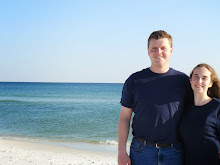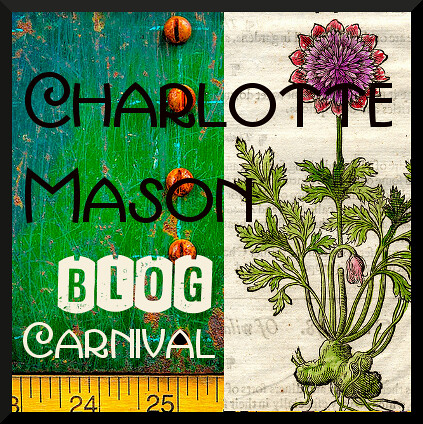"When I talk to people who have lost a brother or a sister, I start by asking them to tell me their story -- from the beginning. Most often, they start with their sibling's death or the illness that led to it. The diagnosis, the phone call in the middle of the night, the secondhand account or the breathless blow-by-blow of a horror they might have witnessed, and which they relive when they allow themselves to remember. At first, as I listened, I frequently thought, But why don't they start from the real beginning? 'He was there, and then I was born' or 'I was born, and then he was there, and this is who we were together.'
Eventually I came to understand. Before the loss of our siblings, we think of ourselves and our siblings from the vantage point of one solid block of 'I,' an already baked cake. The ingredients cannot be neatly separated out after the fact, or identified when the cake is iced, sliced, and served on a plate. The ingredients become something else, something irreducible. You cannot see the flour, the eggs, the baking soda.
We begin with the story of the loss, then, because it is the shock of the impossible -- the rude stripping of one ingredient from the 'I.' The loss is the 'before and after' marker, indicating the moment at which we are forever launched -- often without understanding it -- into an uncertain state in which we are continuously checking our psychic pockets for something we've lost."
~ from The Empty Room: Understanding Sibling Loss by Elizabeth DeVita-Raeburn
Not that I ever viewed my brothers and myself literally as "one solid block of 'I.'" That kind of makes me laugh to myself uncomfortably. Since I can basically only imagine my brothers' responses, I think all three of us would have thrown in a laugh, were we to discuss the question, and perhaps a mocking comment or two concerning psychological jargon. Certainly my brothers and I were/are each unique individuals. But I do think the point remains true that siblings affect each other, if only by their existance, and certainly by more than that as well in most cases. Our identities are somewhat tied to our siblings. I was a firstborn, not an only child. A firstborn of three. Not two. And with the loss comes a shift in identity.
Of course, I still have two brothers, it's just that one of them has changed form, crossed that river of death and left his earthly garment behind, and waits on the other side. But for now, he's unreachable. And we speak of him in the past tense. And that changes things.
I really haven't read too much on the subject of sibling loss yet. I don't know whether or not I will. I did read just a little of C. S. Lewis's A Grief Observed early on (not about sibling loss specifically), but then decided to shelve it and perhaps look back at it another time. Out of curiosity from time to time I have looked into books, and have read some preview sections on Amazon (which is where I got this quote) but I haven't even checked any out from the library, let alone purchasing anything. I might eventually. There's something about identifying with others in time of loss, and books can help. But some of the analysis could be more disturbing than anything else.
For instance, I've noticed that discussions on sibling loss frequently mention that siblings are often virtually ignored in their mourning process for a lost sibling, because attention is focused on parents, and/or a spouse and children if applicable. Not having read this before Clint died of course, I was free from any predispositions in interpreting others' responses to Clint's death at the time. Being unenlightened by the official supposed realities to expect, I simply assumed that people would know that I was sad as well, that I was a genuine part of the mourning. And I think most people did realize that. In fact, I think most people who knew him were very affected by it themselves; it was such a sudden and tragic loss, in more than one way. Sure, I did notice that sometimes people would say things to me like, "Oh, your poor parents!" or "How are your Dad and Mom doing?" or "That must have been so hard for your parents!" But that was my own first response to the situation once it began to sink in even a bit, that it would be so hard on especially Mom and I wanted to help both of my parents as much as I could. I think it's a very natural response, and they are of course the ones who feel the most loss. And really, no one knows what to say anyway in situations like that. So I didn't think those statements/questions by people were inappropriate. You could say in certain circumstances that they might be a bit insensitive, but with the way I appeared they probably would assume I was just doing fine, so that may account for some of the not asking about me. I think my responses probably conveyed that I included myself in the mourning process as well. I recall saying things like "Yeah, it's been hard for all of us," but not in a rebuking or hurt way, just as a statement of fact and including everyone (even people outside the family who were close to him). Plus, many people did ask about me personally anyway. But the point of this was that I'm glad I didn't have any self-consciousness about being overlooked. That could have only added unnecessarily to my burden. As it was, I wasn't offended by anything anyone said or did along those lines at all, for the record. So if you were one of those who said something like the above statements, don't feel bad.
Anyway, when I reflected on that little tidbit I thought, hmm, there are probably other things I'd rather just experience on my own and then read someone else's take on later. So that's where I'm at with that. I did appreciate the above quote, however.
Eventually I came to understand. Before the loss of our siblings, we think of ourselves and our siblings from the vantage point of one solid block of 'I,' an already baked cake. The ingredients cannot be neatly separated out after the fact, or identified when the cake is iced, sliced, and served on a plate. The ingredients become something else, something irreducible. You cannot see the flour, the eggs, the baking soda.
We begin with the story of the loss, then, because it is the shock of the impossible -- the rude stripping of one ingredient from the 'I.' The loss is the 'before and after' marker, indicating the moment at which we are forever launched -- often without understanding it -- into an uncertain state in which we are continuously checking our psychic pockets for something we've lost."
~ from The Empty Room: Understanding Sibling Loss by Elizabeth DeVita-Raeburn
Not that I ever viewed my brothers and myself literally as "one solid block of 'I.'" That kind of makes me laugh to myself uncomfortably. Since I can basically only imagine my brothers' responses, I think all three of us would have thrown in a laugh, were we to discuss the question, and perhaps a mocking comment or two concerning psychological jargon. Certainly my brothers and I were/are each unique individuals. But I do think the point remains true that siblings affect each other, if only by their existance, and certainly by more than that as well in most cases. Our identities are somewhat tied to our siblings. I was a firstborn, not an only child. A firstborn of three. Not two. And with the loss comes a shift in identity.
Of course, I still have two brothers, it's just that one of them has changed form, crossed that river of death and left his earthly garment behind, and waits on the other side. But for now, he's unreachable. And we speak of him in the past tense. And that changes things.
I really haven't read too much on the subject of sibling loss yet. I don't know whether or not I will. I did read just a little of C. S. Lewis's A Grief Observed early on (not about sibling loss specifically), but then decided to shelve it and perhaps look back at it another time. Out of curiosity from time to time I have looked into books, and have read some preview sections on Amazon (which is where I got this quote) but I haven't even checked any out from the library, let alone purchasing anything. I might eventually. There's something about identifying with others in time of loss, and books can help. But some of the analysis could be more disturbing than anything else.
For instance, I've noticed that discussions on sibling loss frequently mention that siblings are often virtually ignored in their mourning process for a lost sibling, because attention is focused on parents, and/or a spouse and children if applicable. Not having read this before Clint died of course, I was free from any predispositions in interpreting others' responses to Clint's death at the time. Being unenlightened by the official supposed realities to expect, I simply assumed that people would know that I was sad as well, that I was a genuine part of the mourning. And I think most people did realize that. In fact, I think most people who knew him were very affected by it themselves; it was such a sudden and tragic loss, in more than one way. Sure, I did notice that sometimes people would say things to me like, "Oh, your poor parents!" or "How are your Dad and Mom doing?" or "That must have been so hard for your parents!" But that was my own first response to the situation once it began to sink in even a bit, that it would be so hard on especially Mom and I wanted to help both of my parents as much as I could. I think it's a very natural response, and they are of course the ones who feel the most loss. And really, no one knows what to say anyway in situations like that. So I didn't think those statements/questions by people were inappropriate. You could say in certain circumstances that they might be a bit insensitive, but with the way I appeared they probably would assume I was just doing fine, so that may account for some of the not asking about me. I think my responses probably conveyed that I included myself in the mourning process as well. I recall saying things like "Yeah, it's been hard for all of us," but not in a rebuking or hurt way, just as a statement of fact and including everyone (even people outside the family who were close to him). Plus, many people did ask about me personally anyway. But the point of this was that I'm glad I didn't have any self-consciousness about being overlooked. That could have only added unnecessarily to my burden. As it was, I wasn't offended by anything anyone said or did along those lines at all, for the record. So if you were one of those who said something like the above statements, don't feel bad.
Anyway, when I reflected on that little tidbit I thought, hmm, there are probably other things I'd rather just experience on my own and then read someone else's take on later. So that's where I'm at with that. I did appreciate the above quote, however.









I've read this several times. I simply can't imagine losing my brother or my sister. I can see where you would want to experience your own way, and I can also see potential comfort in reading about others who have suffered a similar loss.
ReplyDelete